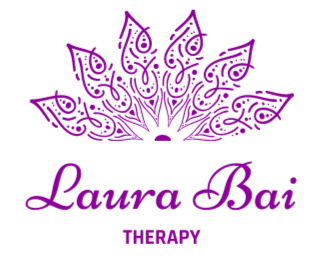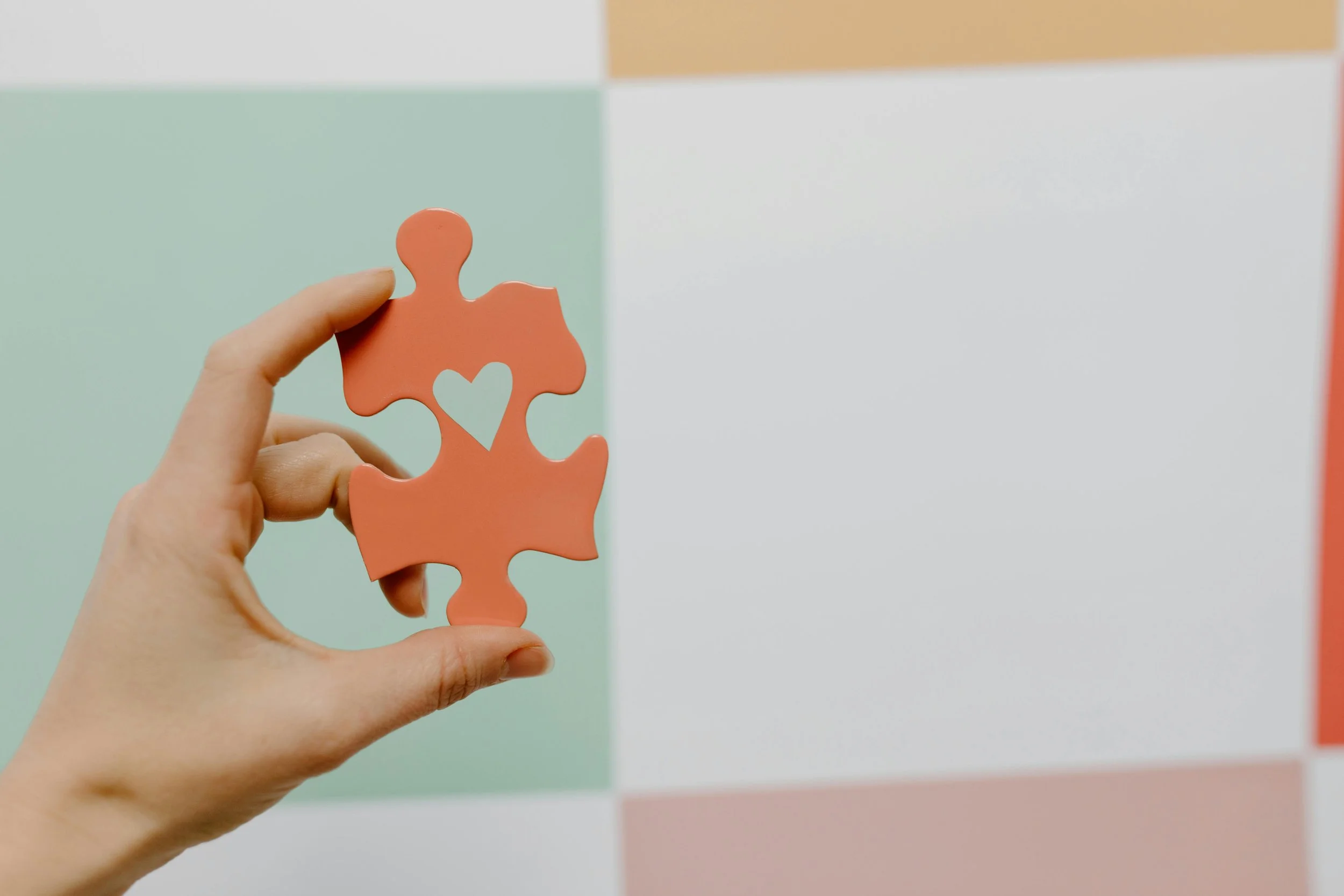
Burnout Therapy
For Asian-Americans in Oakland
When chronic stress, emotional exhaustion, and overwhelming pressure leave you feeling disconnected from yourself and your life, specialized burnout therapy can help you heal. As an Asian-American therapist in Oakland, CA, I provide burnout therapy care designed specifically for Asian-Americans navigating the unique challenges of balancing different cultures.
Burnout can feel particularly complex within our cultural context—the pressure to achieve, family expectations, and the challenge of balancing traditional values with personal wellbeing. If you're experiencing burnout while trying to honor your heritage and forge your own path, you don't have to face this alone.
Understanding Burnout in the Asian-American Experience
Job burnout affects both mental and physical health, manifesting as complete emotional, mental, and physical exhaustion that develops from prolonged stress. For Asian-Americans, experiencing burnout often intertwines with cultural expectations, intergenerational trauma, and the pressure of carrying family dreams while defining personal success.
Burnout research shows that cultural factors significantly influence how severe burnout develops. In my practice, I've observed that burnout symptoms in the Asian-American community frequently include:
Emotional exhaustion that persists even after rest, feeling emotionally exhausted throughout your personal life and professional life, and experiencing overwhelming guilt when taking time for self care. You might find yourself emotionally depleted by conversations about career choices that don't align with family expectations, or drained by constantly translating between your parents' world and your own.
Physical symptoms, including chronic fatigue, muscle tension that won't release, headaches, and sleep disturbances that impact your daily life. Your body might hold the stress of code-switching between cultures, manifesting as tight shoulders from carrying unspoken family burdens or stomach tension from swallowing words you wish you could say.
Mental exhaustion, making even simple everyday tasks feel overwhelming, persistent self-doubt, and difficulty concentrating on work or personal responsibilities. You might second-guess decisions constantly, wondering if you're being too selfish or not grateful enough for opportunities your parents worked hard to provide.
Behavioral changes, such as withdrawing from personal relationships, procrastinating on important tasks, or engaging in perfectionist behaviors that actually increase stress rather than alleviate burnout symptoms. Perhaps you've stopped calling friends who don’t understand the pressure you’re under, or you've become paralyzed by the need to excel in ways that would make your family proud.
The signs of burnout in our community often carry additional weight—the exhaustion compounded by pressure to honor family expectations, succeed professionally to validate parents' sacrifices, and navigate workplace dynamics where you feel you must work twice as hard to prove yourself worthy of opportunities.

Patterns That Contribute to Burnout in Asian-American Families
Burnout stems from interconnected patterns often passed down through generations in immigrant families. Understanding these patterns helps address root issues rather than just managing symptoms.
Family expectations around success create chronic stress when achievement becomes the primary way to show love and gratitude. You might feel caught between pursuing passions that bring you joy and choosing careers that provide security and pride for your family. This internal conflict can lead to severe burnout when you're constantly questioning whether you're honoring your family's sacrifices appropriately.
The model minority myth places unrealistic expectations on Asian-Americans to be perpetually high-achieving, uncomplaining, and self-sufficient. This pressure makes it difficult to acknowledge struggles or seek support, as doing so might feel like failing not just yourself but your entire community.
Intergenerational communication patterns often prioritize harmony and indirect communication over direct expression of needs. You might struggle to tell your parents when you're overwhelmed, instead absorbing their anxiety about your future while suppressing your own concerns about work-life balance.
Cultural values around sacrifice and endurance can make self-care feel selfish or ungrateful. Perhaps you've internalized messages that struggling means you're not working hard enough, or that prioritizing your well-being somehow diminishes your appreciation for your family's efforts to build a better life.
Identity navigation challenges emerge when you're constantly balancing different cultural expectations in various settings. The energy required to code-switch between family gatherings, professional environments, and social spaces can be exhausting, leaving little energy for personal reflection or rest.
My Approach to Burnout Therapy Care
I provide compehensive burnout therapy care that addresses both symptoms and root causes contributing to your exhaustion. My approach integrates therapeutic modalities that honor your cultural identity while prioritizing your mental and physical health.
Attachment-Focused EMDR for Burnout Recovery
Severe burnout often stems from deeply held beliefs about self-worth, safety, and belonging that were shaped by early experiences of love being tied to achievement. Using Attachment-Focused EMDR (Eye Movement Desensitization and Reprocessing), I help you process experiences that created these beliefs—perhaps moments when family praise was tied to grades, times when emotional expression was discouraged, or experiences of feeling caught between your parents' dreams and your own desires.
This approach allows us to work with your nervous system to heal overwhelming experiences while honoring the protective nature of many cultural patterns. Through this work, you develop healthier relationships with achievement and rest that aren't solely tied to meeting others' expectations, helping to reduce stress and prevent future episodes of severe burnout.
You might process memories of being the translator for your family, feeling responsible for their navigation of American systems, or carrying the weight of being their hope for a better future. This work helps you separate your worth from your role as the family's bridge to success.
Somatic Therapy for Body-Based Healing
Job burnout lives in your body as much as your mind. Many Asian-Americans learn to override physical needs for achievement or family obligations, perhaps growing up hearing that rest is laziness or that discomfort builds character. Through somatic therapy, I guide you in reconnecting with your body's wisdom and signals for rest, nourishment, and self-care.
You'll learn to recognize early warning signs of burnout in your body, manage stress more effectively, and develop personalized strategies for preventing future episodes. This work includes learning to release muscle tension that might come from years of holding back tears during difficult conversations, or breathing patterns that developed from anxiety about disappointing family members.
Your body holds the history of straddling two cultures—the tension of bowing respectfully while wanting to stand tall, the exhaustion of always being "on" in professional settings, the physical impact of emotional suppression that was modeled as strength.
Family Therapy for Intergenerational Healing
Sometimes burnout recovery requires addressing family dynamics directly, particularly when well-meaning family members don't understand how cultural expectations contribute to your exhaustion. I offer family therapy sessions that help bridge generational and cultural gaps, creating space for conversations about how immigration experiences affected family patterns around stress, success, and emotional expression.
This work involves navigating the delicate balance between honoring your parents' sacrifices while also acknowledging the pressure you feel to justify those sacrifices through continuous achievement. We explore how trauma from immigration, discrimination, or economic hardship might have shaped family beliefs about safety, success, and vulnerability.
Family members often discover that their expressions of love—through worry about your future, emphasis on stability, or pride in your achievements—might sometimes feel overwhelming. These conversations help create new ways of showing care that feel supportive rather than pressuring.
Parts Work for Internal Integration
Asian-Americans often experience internal conflicts between different aspects of themselves—the part that wants to honor family traditions, the part seeking individual fulfillment, the part striving for perfection, and the part that desperately needs rest. Using Parts Work, I help you understand and integrate these aspects, reducing the internal stress and self-doubt that contribute to burnout.
This approach allows you to honor all parts of your experience without choosing between cultural identity and mental health. You might work with the part of you that feels guilty for wanting work-life balance, the part that fears failure, and the part that knows you need to practice self-compassion to sustain yourself long-term.
Through this work, you learn that you can love your family deeply while also setting boundaries, appreciate your heritage while also adapting traditions to fit your life, and honor your parents' sacrifices while also tending to your own needs for rest and joy.

Developing Effective Coping Strategies
Burnout recovery requires developing coping strategies that work within your cultural context while prioritizing well-being. I work with clients to develop personalized approaches that feel authentic to who you are:
Redefining success to include emotional and relational well-being, not just professional achievement. This might mean learning to measure success by how well you maintain relationships, how effectively you manage stress, or how authentically you live according to your values rather than solely by external markers like salary or title.
Creating boundaries with love by finding ways to protect your energy while deepening rather than distancing family relationships. This involves learning to communicate your needs in ways that help family members understand your experience rather than just comply with rules they don't understand.
Integrating cultural wisdom by honoring the resilience and strength from your heritage while also embracing practices that support modern mental health needs. This might include adapting traditional meditation practices, incorporating cultural foods that nourish you, or finding ways to practice gratitude that don't ignore your struggles.
Building authentic community by connecting with others who understand the complexity of living between cultures, reducing the isolation that comes from feeling like you have to explain your experience to be understood.
The Importance of Self-Care Without Guilt
Learning to practice self-care often requires unpacking cultural messages about selfishness, laziness, or ingratitude. In our work together, I help you understand that caring for yourself actually enhances your ability to care for others and work effectively.
Self-care practices supporting burnout recovery include getting enough sleep without guilt, nourishing your body with foods that feel good, moving in ways that bring you joy, and creating time for activities that connect you to who you are beyond your achievements.
I work with clients to develop self-care routines that feel meaningful rather than prescribed, often incorporating elements from your cultural background that genuinely support your well-being rather than adding to your sense of obligation.
Prevention and Long-Term Wellness
Effective burnout therapy care involves addressing current symptoms while developing strategies to manage stress and prevent future episodes. This often means learning to recognize patterns before they become overwhelming and developing skills to navigate cultural pressures without sacrificing your well-being.
Learning to manage stress effectively involves understanding your unique triggers—perhaps family gatherings that include career discussions, workplace situations where you feel you have to prove your competence, or social situations where you feel pressure present perfection.
This work often addresses other struggles that may contribute to burnout patterns, such as anxiety about not being enough, sadness about feeling disconnected from your own passions, or anger about discrimination you've experienced. By addressing these interconnected struggles, we significantly reduce your vulnerability to future burnout episodes.
Supporting Your Complete Well-Being
Burnout affects both mental and physical health, so comprehensive care must address both aspects. I help you understand how physical symptoms relate to your emotional and psychological experience of cultural stress and family dynamics.
This holistic approach often leads to more sustainable and comprehensive healing. You will find that as you learn to honor your body's needs and emotional truth, you feel more grounded in your identity and more capable of navigating your own and others’ expectations without losing yourself.
Your Path to Recovery
Healing from severe burnout is not linear, and burnout recovery looks different for everyone. In our work together, I help you develop a personalized understanding of sustainable living that honors both your cultural identity and individual needs.
Healing often involves grieving—mourning the version of success you thought you needed to achieve, letting go of the impossible standard of making everyone proud while never struggling, and creating space for a more authentic way of being in the world.
I provide a safe space where you can explore the complexity of loving your family while also needing different things than they want for you, appreciating your heritage while also adapting it to fit your life, and honoring the past while also creating your own future.

Take the First Step Toward Healing
If you recognize yourself in this description and feel ready to begin healing, I invite you to reach out for a free 20-minute consultation. During this conversation, we'll discuss your specific situation, explore how family and cultural dynamics might contribute to your burnout symptoms, and determine if my approach to burnout therapy care feels like a good fit.
You don't have to navigate this alone. As someone who understands the unique complexity of honoring family while also honoring yourself, I'm here to support you in creating a life that integrates all parts of who you are.
Burnout recovery is possible without choosing between your cultural identity and your well-being. Together, we can find a path forward that allows you to find work-life balance, appreciate your heritage, and live in a way that feels sustainable and authentic to you.
Ready to begin your burnout recovery journey? Contact me today to schedule your free consultation and take the first step toward sustainable well-being that honors all parts of who you are.








